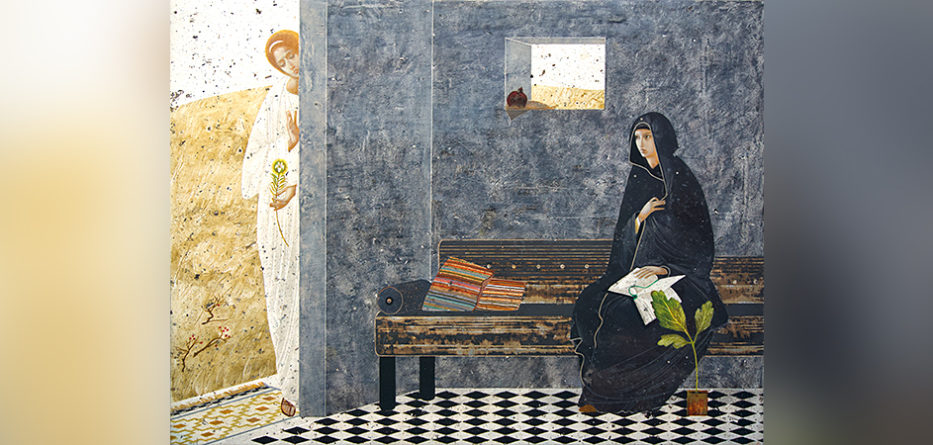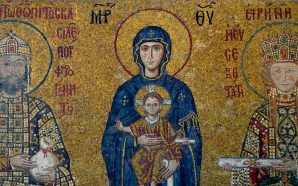Luke follows his description of the unexpected visit of the Bethlehem shepherds to the newborn Jesus with the words, “Mary pondered all these things in her heart.” The Greek word that Luke chose for ‘ponder’ means to toss things around and compare them in order to put the pieces together and arrive at a satisfactory interpretation. In the culture of ancient Israel, the heart was seen as the centre of thought, mind and intellect. Thoughts, emotions and impressions are carefully weighed and frequently revisited in the process of pondering.
In the wisdom tradition of Israel, it was the wise who stored up events, words and experiences in their heart to reflect on them so they might learn from them and continue to walk in the way of wisdom.
Is there a mother who does not think her baby is special? In this case, Mary had experienced a revelation outside herself and her own imagination that her child was unique and in some mysterious way the ‘Son of the Most High’. She has to take this in and process it along with all the things that had happened to her since she conceived. And just now she had been visited by some shepherds who were also acting on a revelation that this baby was to grow and become a saviour to Israel. How could these lowly rough diamonds be aware of her baby boy?
The unexpected arrival of the shepherds, the witness they bore of their spiritual experience and the testimony of their homage had a profound impact on this young mother as her heart and mind opened to the poetry of faith and deep trust laid out before her – another sign of the faithful hand of God. Struck with the reality of the glory of the Lord, she saw in these shepherds a living example of how the poor and lowly have the good news brought to them.
Night falls and she lays her baby down to sleep and then settles down herself in the dark beside Joseph to drift into sleep. But she cannot help going over all these events in her own quiet time and pondering them in her inner self. One day the pieces may fit. For now, there is only letting go to trust in the Divine Presence.
Luke presents Mary as a model of mindfulness, carefully taking time to engage in deep listening so she can discern with wisdom and arrive at some understanding of the life-changing experiences associated with giving birth and nurturing a newborn. She is unaware of the storms she will be asked to walk through, but her muted pondering will shape the course of her ongoing trust and endurance.
We are witnessing a young woman of maturity whose inner silence is at peace with all she has felt and witnessed. She knows she is not alone. With the support and loving companionship of Joseph, she is confident that the next phase of her life will unfold in its own time, in keeping with the divine plan.
Mary exemplifies the level of awareness and reflection that promotes sound mental health. She is engaged in deep listening, which her adult son referred to as bringing rest for the soul or, to copy his Aramaic phrase more accurately, profound calm in one’s inmost being, where there is no hint of anxiety or psychic restlessness.
Like Mary, we can choose to abandon perfectionism and the need for control, and practise letting go. Going calmly with acceptance and trust is a matter of choice.
Dr Laurie Woods is a retired senior lecturer in Biblical Studies from the Australian Catholic University and currently conducts teacher in-service sessions and parish reflection days. He lives in the Diocese of Parramatta and is a member of Our Lady of the Nativity Parish, Lawson.
This article was originally published in the 2022 Lent and Easter/Autumn 2022 edition of the Catholic Outlook Magazine. You can read the magazine here.








